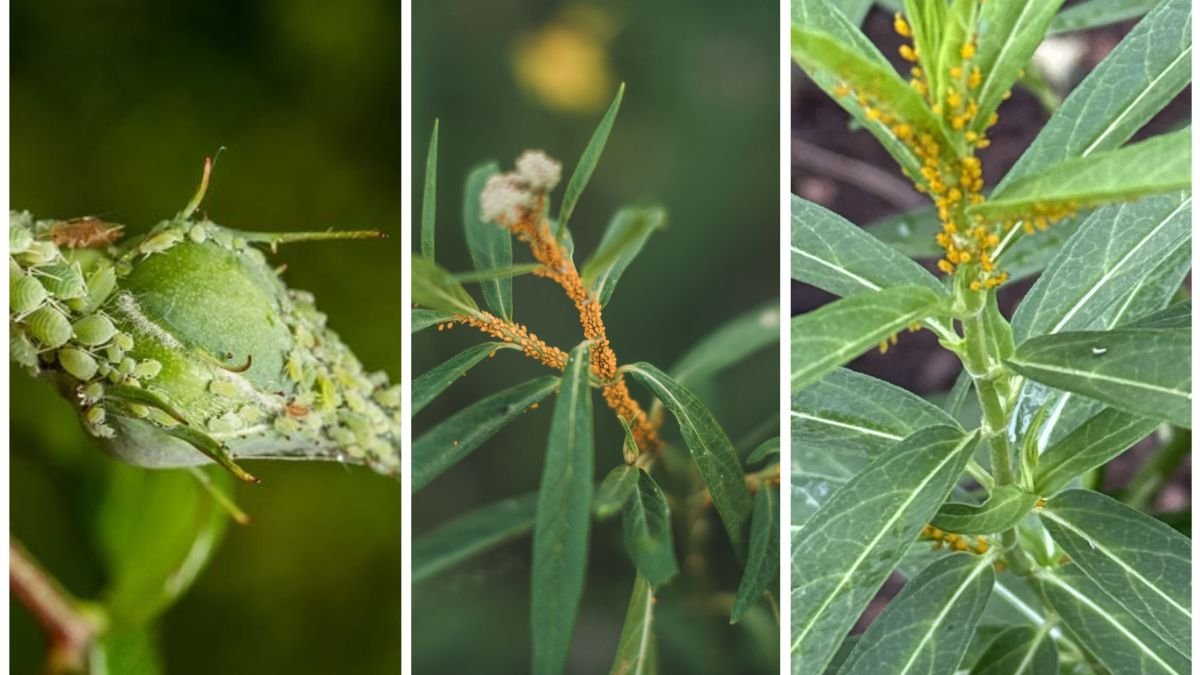Aphids may be tiny, but they can cause enormous problems in your garden. These soft-bodied insects suck the sap out of plants, leaving leaves curled, yellowed, and distorted. They also secrete a sticky substance called honeydew, which attracts ants and fosters sooty mold, further weakening plants. Left unchecked, aphid infestations can spread rapidly across vegetables, flowers, fruit trees, and ornamentals.
Many gardeners reach for chemical insecticides to control aphids, but these often do more harm than good. They can kill beneficial insects, contaminate soil, and pose risks to people and pets. Fortunately, there are effective, natural ways to manage aphids without resorting to harsh chemicals. In this article, we’ll explore the best eco-friendly strategies to stop aphids and restore balance in your garden.
Understanding Aphids and Why They’re a Problem
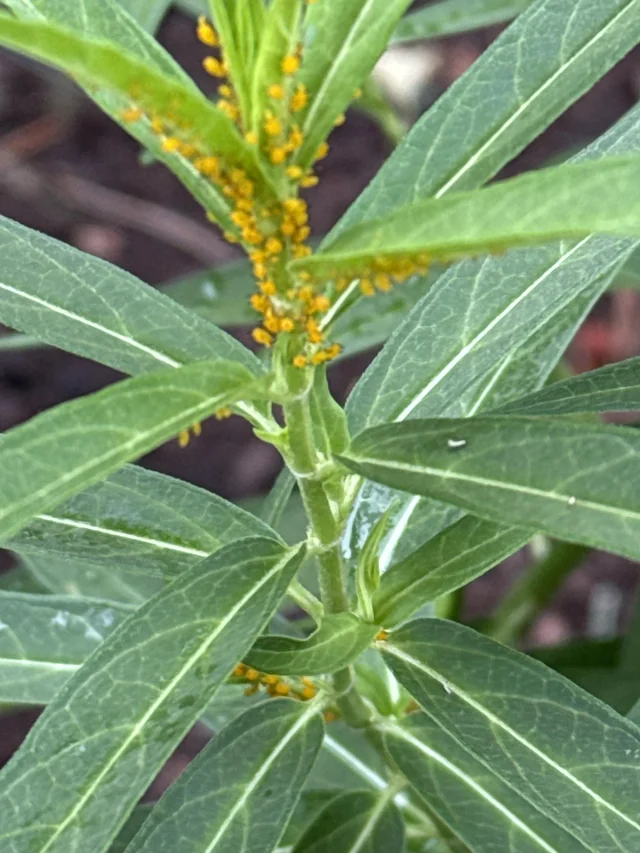
Before tackling aphids, it helps to understand how they behave:
- Rapid Reproduction: Aphids multiply quickly, with females capable of giving birth to live young without mating. This leads to population explosions in just a few weeks.
- Wide Range of Hosts: They attack over 200 plant species, from roses to tomatoes.
- Vectors of Disease: Aphids spread plant viruses, weakening crops.
- Relationship with Ants: Ants often “farm” aphids, protecting them in exchange for honeydew.
Because of their biology, controlling aphids isn’t about eliminating every last one but about restoring natural balance so plants can thrive.
Natural Ways to Stop Aphids
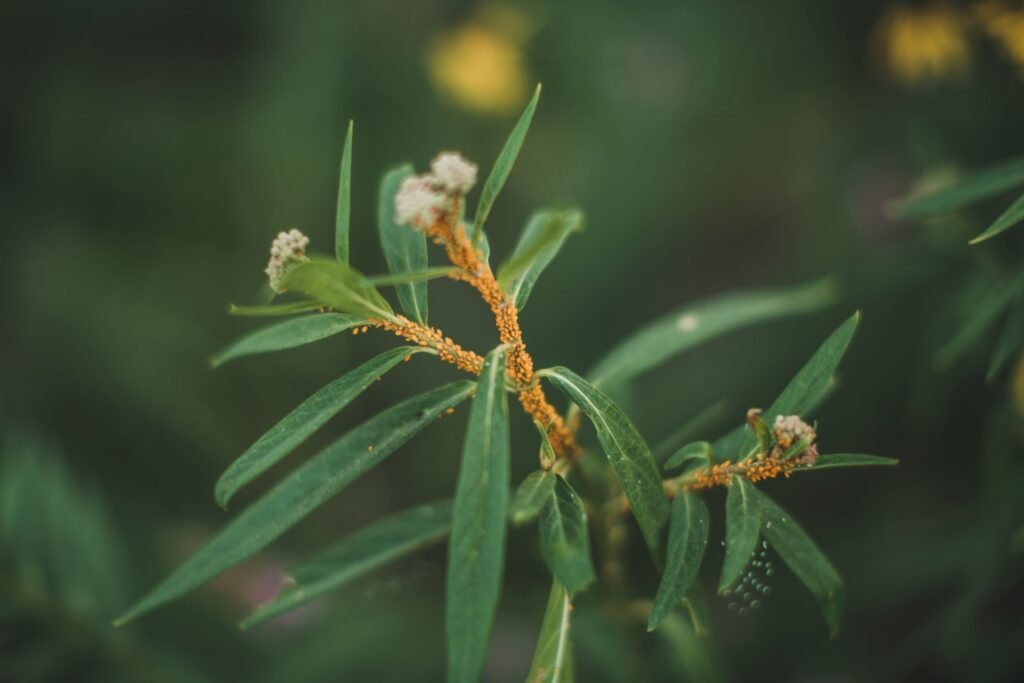
1. Blast Them Off With Water
Sometimes the simplest solutions are the most effective. A strong stream of water from a garden hose can dislodge aphids from plants. Since most aphids cannot climb back up easily, this method drastically reduces their numbers.
- Best For: Tender plants like lettuce, kale, and flowers.
- Tip: Spray in the morning so leaves have time to dry during the day, reducing the risk of fungal diseases.
2. Introduce Beneficial Insects
One of the best natural defenses against aphids is biological control—relying on predators that feed on them.
- Ladybugs: Each adult can consume up to 50 aphids a day.
- Lacewings: Their larvae, often called “aphid lions,” are voracious hunters.
- Parasitic Wasps: These tiny wasps lay eggs inside aphids, turning them into “mummies.”
- Hoverflies: Their larvae also eat aphids while adults help pollinate flowers.
How to Attract Them: Plant nectar-rich flowers like dill, fennel, cosmos, and marigolds. Avoid pesticides that kill these helpful allies.
3. Neem Oil Spray
Neem oil, derived from the seeds of the neem tree, is a powerful organic solution against aphids. It disrupts insect feeding and reproduction without harming beneficial insects when applied correctly.
- How to Use: Dilute neem oil with water and spray directly onto leaves, especially the undersides where aphids hide.
- Benefits: Safe for humans, pets, and pollinators when used as directed.
4. Homemade Soap Spray
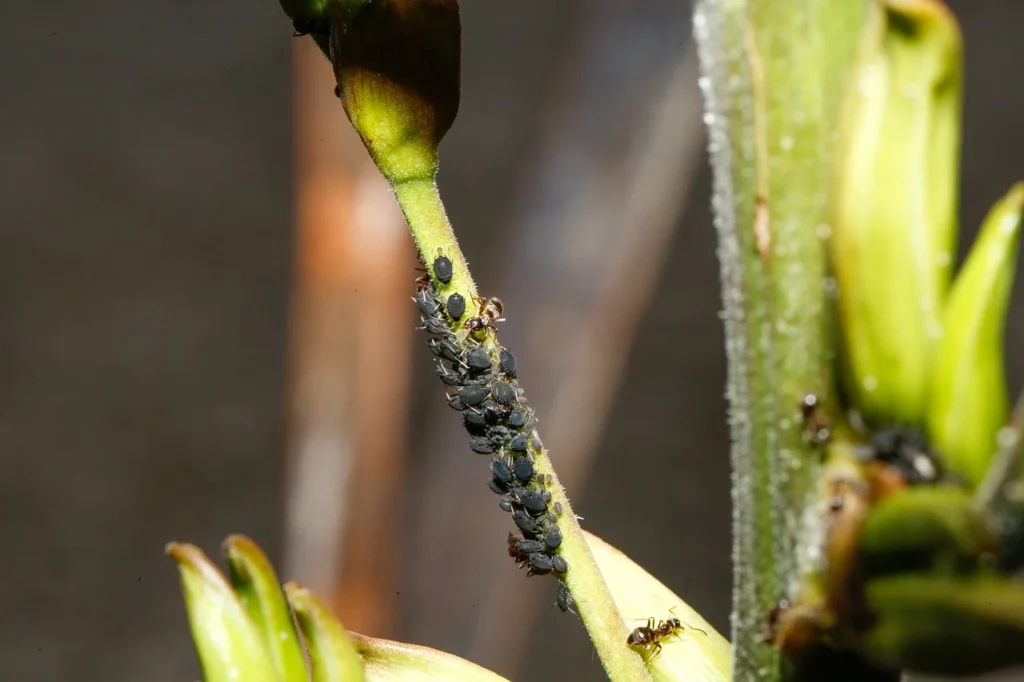
Aphids have soft bodies, making them highly vulnerable to soap sprays. Soap breaks down their protective coating, leading to dehydration.
- Recipe: Mix 2 teaspoons of mild liquid soap (like Castile soap) with 1 quart of water.
- Application: Spray on affected plants, covering all surfaces. Repeat every 2–3 days until aphids disappear.
- Tip: Test on a small area first to ensure plants don’t react negatively.
5. Essential Oils as Natural Repellents
Certain essential oils repel aphids without harming plants. Peppermint, rosemary, and clove oils are especially effective.
- How to Use: Mix 10–15 drops of essential oil with water and a few drops of mild soap, then spray onto plants.
- Bonus: The strong fragrance also deters other pests like spider mites and whiteflies.
6. Companion Planting
Strategically planting certain herbs and flowers can help deter aphids or attract beneficial insects.
- Repel Aphids: Garlic, chives, and onions emit strong odors that aphids dislike.
- Trap Crops: Nasturtiums and sunflowers attract aphids, luring them away from your vegetables.
- Beneficial Attractors: Dill, yarrow, and calendula draw ladybugs and lacewings.
This technique not only reduces aphids but also promotes biodiversity in the garden.
7. Diatomaceous Earth
Diatomaceous earth (DE) is a natural powder made from fossilized algae. It has sharp edges that damage the exoskeletons of soft-bodied insects like aphids.
- How to Use: Dust lightly on leaves and around the base of plants.
- Note: DE loses effectiveness when wet, so reapply after rain or watering.
8. Remove by Hand
For small infestations, simply wiping aphids off with your fingers or pruning affected leaves can solve the problem quickly. While not glamorous, it’s effective for localized outbreaks.
9. Control Ant Populations
Since ants protect aphids in exchange for honeydew, controlling ants indirectly reduces aphid survival. Use sticky barriers around plant stems or apply diatomaceous earth around the base to block ants from climbing.
10. Maintain Plant Health

Healthy plants are more resilient against aphids. Proper watering, mulching, and soil fertility help plants withstand minor infestations without serious harm. Stressed plants, on the other hand, attract more aphids.
Why Avoid Harsh Chemicals?
Using chemical pesticides against aphids might seem like a quick fix, but it creates more problems than it solves:
- Kills Beneficial Insects: Ladybugs, lacewings, and bees are often casualties.
- Pesticide Resistance: Aphids reproduce so quickly that they develop resistance to chemicals.
- Environmental Harm: Chemicals contaminate soil and water, harming ecosystems.
- Human Health Risks: Residues on food crops can be harmful if consumed.
Natural solutions are safer, sustainable, and just as effective when applied consistently.
Step-by-Step Integrated Approach
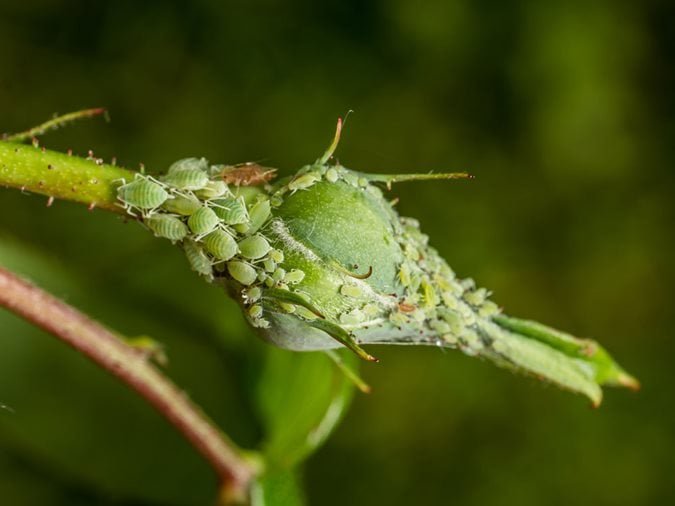
To stop aphids without chemicals, use a combination of strategies for the best results:
- Monitor Regularly: Check plants, especially undersides of leaves, for early signs of aphids.
- Physical Removal: Use water sprays or handpicking to reduce numbers immediately.
- Biological Control: Encourage or introduce predators.
- Targeted Treatments: Apply neem oil, soap spray, or essential oil sprays for persistent infestations.
- Long-Term Prevention: Use companion planting, maintain soil health, and manage ants.
By layering these techniques, you create an ecosystem where aphids are naturally controlled.
Conclusion
Aphids don’t have to ruin your garden or force you into using harsh chemicals. By understanding their behavior and using natural strategies, you can effectively manage them while protecting pollinators, beneficial insects, and the environment.
Whether it’s blasting them with water, releasing ladybugs, spraying neem oil, or planting garlic and nasturtiums, every gardener has a toolbox of safe, eco-friendly solutions at hand. The key is early detection, consistent action, and fostering balance in your garden’s ecosystem.
With these natural methods, your vegetables, flowers, and fruit trees can thrive without the shadow of chemical dependence—and your garden will be healthier, more vibrant, and more sustainable in the long run.
